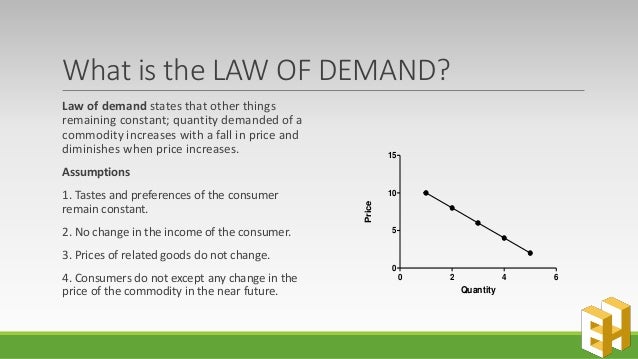The Law of Demand: Understanding How Price Affects Consumer Behavior

What is the Law of Demand?
The law of demand is a fundamental concept in economics that explains the relationship between the price of a good or service and the quantity demanded by consumers. The law of demand states that as the price of a good or service increases, the quantity demanded by consumers decreases, and vice versa. This inverse relationship between price and quantity demanded is represented by a downward sloping demand curve.
Factors that Affect Demand
While the law of demand provides a basic framework for understanding consumer behavior, there are several factors that can influence demand for a particular product or service. These factors include:
- Price of related goods or services
- Consumer income
- Tastes and preferences
- Availability of substitutes
- Market competition
Price of Related Goods or Services
The price of related goods or services can have a significant impact on demand. For example, if the price of coffee increases, consumers may switch to tea as a substitute, which would decrease the demand for coffee.
Consumer Income
Consumer income can also affect demand. As income increases, consumers may be willing to pay more for certain goods or services, which would increase demand. On the other hand, if income decreases, consumers may be forced to cut back on expenses, which would decrease demand.
Tastes and Preferences
Consumer tastes and preferences can also influence demand. For example, if a new flavor of ice cream becomes popular, demand for that flavor may increase, while demand for other flavors may decrease.
Availability of Substitutes
The availability of substitutes can also affect demand. If a particular product has many close substitutes, consumers may be more likely to switch to a cheaper alternative if the price of the original product increases.
Market Competition
Market competition can also play a role in demand. If a particular product has many competitors, consumers may be more likely to switch to a cheaper alternative if the price of the original product increases.
Advantages and Disadvantages of the Law of Demand
Like any economic principle, the law of demand has its advantages and disadvantages.
Advantages
- Helps businesses determine pricing strategies
- Can be used to predict consumer behavior
- Provides a framework for analyzing market trends
Disadvantages
- Assumes that all other factors remain constant, which is rarely the case in the real world
- Does not take into account factors such as advertising and marketing that can influence consumer behavior
- Does not account for irrational or emotional decision making by consumers
Conclusion
The law of demand is a fundamental concept in economics that explains how price affects consumer behavior. While there are many factors that can influence demand, the law of demand provides a basic framework for understanding how changes in price can affect the quantity demanded by consumers. By understanding the law of demand, businesses can make more informed pricing decisions and consumers can make more informed purchasing decisions.
FAQs
Q: What is the difference between demand and quantity demanded?
A: Demand refers to the entire relationship between price and quantity demanded, while quantity demanded refers to a specific point on the demand curve.
Q: What is the law of supply?
A: The law of supply is a principle in economics that states that as the price of a good or service increases, the quantity supplied by producers increases, and vice versa.
Q: What is elasticity of demand?
A: Elasticity of demand refers to how responsive quantity demanded is to changes in price. A product with high elasticity of demand will see a large decrease in demand when the price increases, while a product with low elasticity of demand will see a smaller decrease in demand.
Q: How does the law of demand affect pricing strategies?
A: The law of demand can help businesses determine the optimal price for a product or service. By understanding how changes in price affect demand, businesses can set prices that maximize profits while still maintaining a reasonable level of demand.
